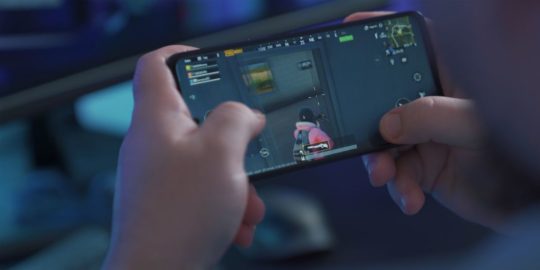Liveops events are a great way to keep your mobile game engaging and exciting for players. These events can take many forms, such as limited-time challenges, special in-game items or bonuses, and even real-world prizes. But the key to any successful liveops event is to prepare for it thoroughly.
In our previous post, we covered the three building blocks of an effective liveops event. Below, we present the principles you need to keep in mind when planning it out so that you end up with an event that is both fun and rewarding for players, and which creates an experience they’ll want to keep returning to.
The Four Principles to Staging an Effective LiveOps Event
Before you go gung-ho on your event, there are four things you should keep in mind in order to ensure its success:
- Plan ahead: Draft a clear plan for the liveops event, including what it will involve, how long it will run, and what rewards players can earn.
- Make it exciting: Look, if you’re not excited about the event, you can’t expect your players to look forward to it. Consider offering rare in-game items or bonuses, or even real-world prizes that are relevant to your player demographic.
- Keep it fresh: Yes, a successful recipe should be repeated. But do try to mix things up and offer a variety of liveops events. Players will likely get bored with the same old thing week in and week out.
- Engage with your players: Encourage players to participate in your liveops events by promoting the events on social media and in-game and by responding to player feedback and suggestions. When you make your players stars, they’ll love you for it.
Overall, the key to successful liveops events is to make them fun and engaging for your players. Do the things that matter to your players: give them immersive and engaging social experiences, gripping storytelling, and rewards that matter.
Take Control of Key Areas
Before you plan out the actual agenda of your event, ensure that you have control over four key areas:
- Your store: sales, events, promotions
- Game design: level design, progression difficulty
- Control integrations: privacy prompts, IDFA conversion value generations, remote SDK configuration
- Ad monetization: rewarded video ads, ad frequency
In a recent webinar with us (LiveOps On A Shoestring Budget), Larry Hsieh, the Principal Product Manager at MobilityWare shared why this is crucial: “Anything you want to be able to control on a per user level is what we want to have.” The advantage is you can “dial up or dial down certain things. Then when things actually go out into release or production, if something goes wrong you can actually just go in and then do master controls and actually back things out.”
Plan Out Your Events Cycle
A major part of planning your event is to answer the question: How many in-game events do you intend to stage — and how often?
Of course your answer will depend on your game and the type of players you have in the community. But having a goal will provide you with a direction.
Hsieh says: “Once you have stuff really, really humming, you can do events almost daily, if not weekly. So it really just depends on the type of events. For flash events and things like that, then those can be daily. For events where we want to have (game) progression, those are at least a week, if not a month apart.”
Set Up Your Automation
When resources such as manpower and tech stack are limited, you’re going to need the assistance of automation to do the heavy lifting of your event — particularly when your game scales to millions of users.
Setting up a liveops process and using automation was key to the success of MobilityWare’s various events. Larry Hsieh shares: “I have been in other places where they have very customized tools that are very sophisticated, and if it’s not designed very simplistically, it makes it really challenging to be able to scale. “So for us, we want to be able to keep events as automated and as easy to set up as possible.”
The benefit was easily being able to scale successful events and make them easily repeatable.
“To give you an idea,” Hsieh says, “we actually had someone from university intern and work with me. But we got to the point where we had things so streamlined that we could actually let him run a live event after some basic training. And he was able to rerun the events every week.”
Learn More
Want to learn more about how Leanplum can help your game? Check out these additional resources:
- Watch the full webinar with MobilityWare, LiveOps on a Shoestring Budget, where we discuss the inner workings of how they use Leanplum for live events.
- Explore our Gaming Apps Data Science Report to see how specific engagement strategies impact retention and revenue.
- Read our article on How to Increase Player Engagement and Revenue for more insights on boosting overall engagement and monetization in mobile gaming.
- Check out the Product Tour to see Leanplum in action.
- Set up a complimentary personalized demo of Leanplum.




